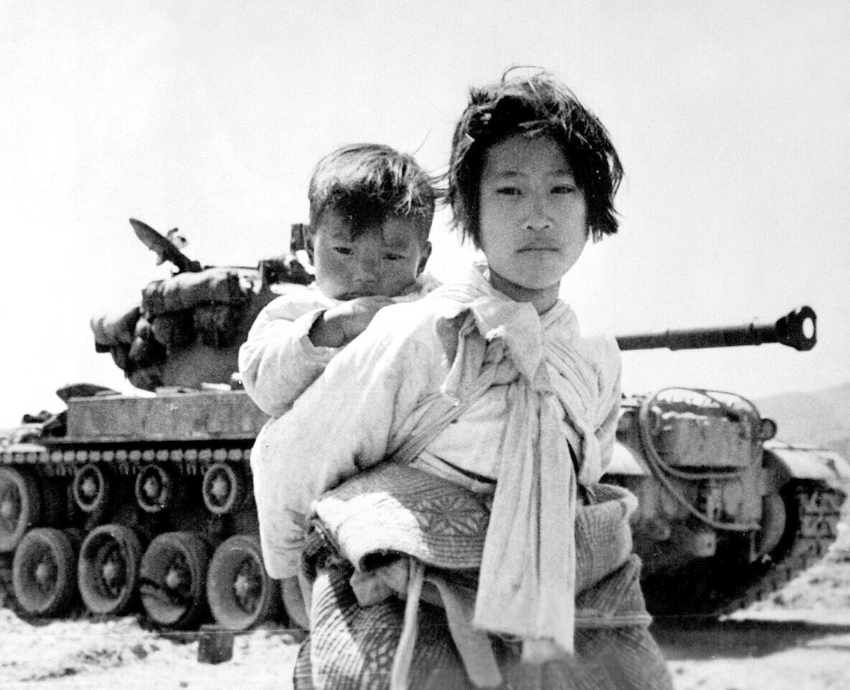
July 27 marks the 71st anniversary of the Korean War armistice, essentially a ceasefire agreement.
No peace treaty has been signed to officially end to this horrific war, which cost more than three million lives, displaced millions more, left the country’s major cities destroyed, traumatised generations of Koreans and left a nation divided.
Korean peace activists are taking action around the world, including in Seoul, and New York City and Sydney.
There will be an End The Korean War rally on July 27 in Paju city near the Demilitarized Zone on the border between North and South Korea.
In Seoul, the capital of the Republic of Korea (South Korea),there will be a mass candlelight protest on July 27 calling for an impeachment of South Korean President Yoon Suk-yeol for corruption, escalating military tensions on the Korean Peninsula and for not stopping Japan's release of Fukushima nuclear wastewater into the ocean.
More than 1.4 million people signed an online petition to that effect on the South Korean national assembly website, by the time it closed on July 20. The site crashed several times due to the large number of people trying to sign on.
Any petition signed by more than 50,000 people must be sent to a standing committee, which will decide on July 26 whether to put it to the National Assembly for a vote.
President Yoon signed a “guidelines” agreement with United States President Joe Biden on July 11, which formalised the deployment of US nuclear weapons in South Korea, which had already begun at his invitation.
A gathering of experts at a June 18 forum organised by the International People’s Tribunal on the 1945 US Atomic Bombings in Hiroshima declared that “US policy of extended deterrence on the Korean Peninsula is a violation of international law and the United Nations Charter”.
Charles J Moxley jnr, an adjunct professor of law at Fordham Law School in the US, told the forum that according to international humanitarian law, it is unlawful for a state to use weapons whose effects cannot be controlled by the user, which cause disproportionate harm to civilian lives and assets, cause harm to combatants, civilians and their property and which are not necessary for any military advantage.
The Yoon administration, together with the governments of Australia, New Zealand and Japan, attended the July 10-12 North Atlantic Treaty Organisation summit in Washington and welcomed greater NATO involvement in the Asia-Pacific region.
Shin Joon-shik, a Korean-Australian peace activist who participated in the recent People’s Tribunal forum in Hiroshima, told Green Left that “the Yoon administration and its regional imperialist partner states, have demonstrated their reckless escalation of the dangerous new arms race in the region”.
Meanwhile, activists in the Korean American Peace Fund (KAPF) began projecting two 30-second video calls for peace on the Korean Peninsula on Manhattan's giant Times Square electronic screen in New York, on July 22.
The peace videos will run until July 27.
KAPF President Mun Yu-soung said the video campaign is an effort to inform US society of the unfinished Korean War and to urge the US public to pay attention and act, as military tensions on the Korean Peninsula are worsening day by day and the war crisis is escalating.
Yoo Yong-yi, a New Yorker and survivor of the Korean War, appears in the video: “For me, who experienced the Korean War first-hand, the important meaning of this campaign is to earnestly hope that our descendants will not have to go through the painful things I went through.”
Her mother, a soldier's wife, had to live separated from her children during the Korean War and suffered throughout the war.
Becky Belcore, a Korean adoptee, also appears in the video: “The Korean War created many war orphans” and “200,000 of them were adopted overseas, and I am one of them.”
Ana Yang, a second- generation Korean living in Chicago, also appears in the video holding a poster calling for the signing of a peace agreement: “Growing up, I heard stories from my family about the divided Korean Peninsula ... I participate in the peace campaign because I know that deep emotions and cultural divisions still persist.”
KAPF supports the proposed Korean Peninsula Peace Act currently being submitted to the US House of Representatives. It calls for serious and urgent diplomacy to pursue a binding peace agreement to formally end the war on the Korean Peninsula and requires a report from the Secretary of State outlining a clear roadmap for achieving a durable peace agreement on the Korean Peninsula.
411 - hiroshima - photo supplied.jpg
